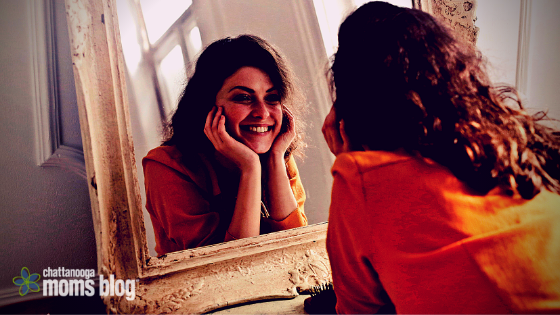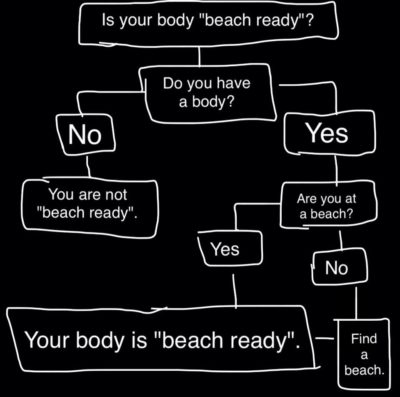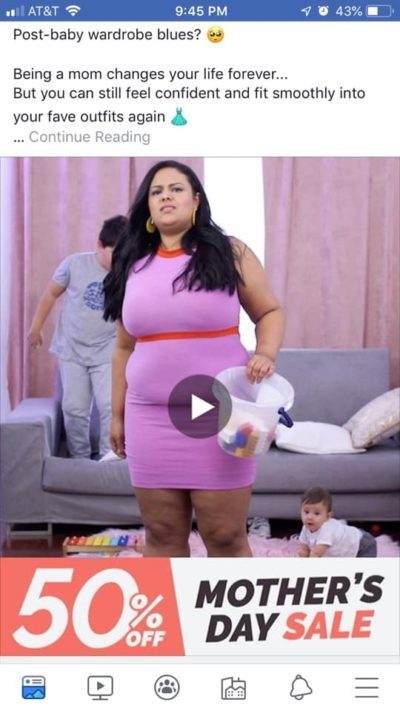 Several years ago, a friend posted a flowchart he had made describing how to tell if you’ve got a “beach-ready” body. The premise is simple:
Several years ago, a friend posted a flowchart he had made describing how to tell if you’ve got a “beach-ready” body. The premise is simple:
Do you have a body?
Yes.
Are you at the beach?
Yes.
Then you’ve got a “beach-ready” body.
It’s a beautiful flowchart – okay, it’s actually an ugly flowchart – with an even more beautiful message.

‘Tis the season, friends, for ads galore on what it means to be “beach ready.”
When an advertiser starts talking about beach season, we probably conjure up images of thin, tan models (men and women) in form-flattering attire. And despite the great strides taken in the last few years by brands that have decided to ditch Photoshop for more natural imagery – and a fuller range of models – we’ve still got work to do when it comes to supporting healthy body image, especially as parents.
Fellow contributor Rebecca wrote last month about learning to love herself through the process of building up her daughter, and I was struck by her honest look at how she views herself. For one thing, I don’t struggle as much with body image these days. For another, I’m raising a son. Let me clarify the first thing before I unpack the second.
I’ve never been a thin, tan model wearing form-flattering attire. Around age eight or so, I started getting chubby and stayed that way. My weight has fluctuated somewhat since I became an adult, but it’s remained at the “not gonna post the number” end of the scale for most of the last decade. Until last summer, I refused to wear shorts or shorter-than-knee-length skirts because I’ve always hated my knees. Then, in a moment of epiphany while planning for our Disney trip, it hit me: No one cares about my knees but me. I packed a bunch of shorts and t-shirts and spent our horrifically muggy trip to Orlando at least somewhat more comfortable because I wasn’t trying to hide my legs.
It was a real breakthrough.
I started wearing shorts in public at home, too. Over time, I experimented with other clothes I had considered “off limits” because of my size or shape. I became a devotee of leggings and tunic-style tops (or long T-shirts). This past weekend, I wore a maxi dress without sleeves. I’m still debating buying a jumpsuit I tried on a few weeks ago, not because it’s unflattering (it actually isn’t), but because it’s impractical.
At 33, I’ve finally figured out that I’m the only one worrying about what I’m wearing.
That’s an oversimplification, of course. Truth be told, I’ve raised my eyebrows many a time at clothing I consider questionable. And not that I’ve been totally cured by that mentality, but I’d like to think I’ve become less judgmental about other people’s attire now that I’m more comfortable in my own. I was insecure about my appearance and projected that insecurity onto other people (mostly other women, I’m sorry to say). Gaining confidence – or an “I don’t care” attitude – about what I wear has made me look at people differently, in that I don’t really care what they’re wearing, either. I’m working on it, anyway. It’s not a perfect process, but it’s a start.
Now, as for why raising a son matters, that’s a related concern.
Rebecca talks about raising a girl because a) she has one and b) society’s rougher on us womenfolk. Case in point:

This ad keeps showing up in my Facebook feed for shapewear (I guess Mark Zuckerberg didn’t get the memo about my enlightenment). Just before Mother’s Day, the ad claimed that shapewear would make a great Mother’s Day gift. Gag. I don’t care if you want to wear shapewear, but the messaging here is ridiculous. None of the ads I see for Father’s Day are about shapewear.
When I think about raising Arthur, I worry about lots of things. Broken bones, mortal peril, his future job prospects, whether he’ll ever eat a vegetable, what the country will look like. But I don’t think, “How will society see him?” I don’t worry about him being beautiful or lacking self-esteem because of his appearance. It’s never crossed my mind that others would see his form first and his essence second.
But that’s how a lot of society still sees women.
Is it because he’s male that I don’t worry? Is it because I’m not as worried about my own image anymore? Either way, Rebecca’s post made me realize that raising any child – male or female – requires some forethought in how to adjust the filter that societal norms, marketing, and the media collectively place on how we see each other.
How Arthur sees people starts at home. The way we describe people, how we dress ourselves, how long we spend in front of a mirror – these are the things that will shape our children’s expectations of what men and women should prioritize. It’s a humbling thought.

















Great Job Jen! You’re absolutely right, taking care of yourself is both physical and mental. You can be tan and thin all you want but it doesn’t mean a thing if your thoughts are consumed by what others think of you.
Thank you so much for writing this! I feel very happy that you Have positive body image (-as you should becaus you are wonderful) and want that ability! I strive to get to the place where I am comfortable as me. I don’t have a son so I think it is interesting to consider how my worries would or will change if we are able to have a son later. Very well written! Thank you.
Comments are closed.